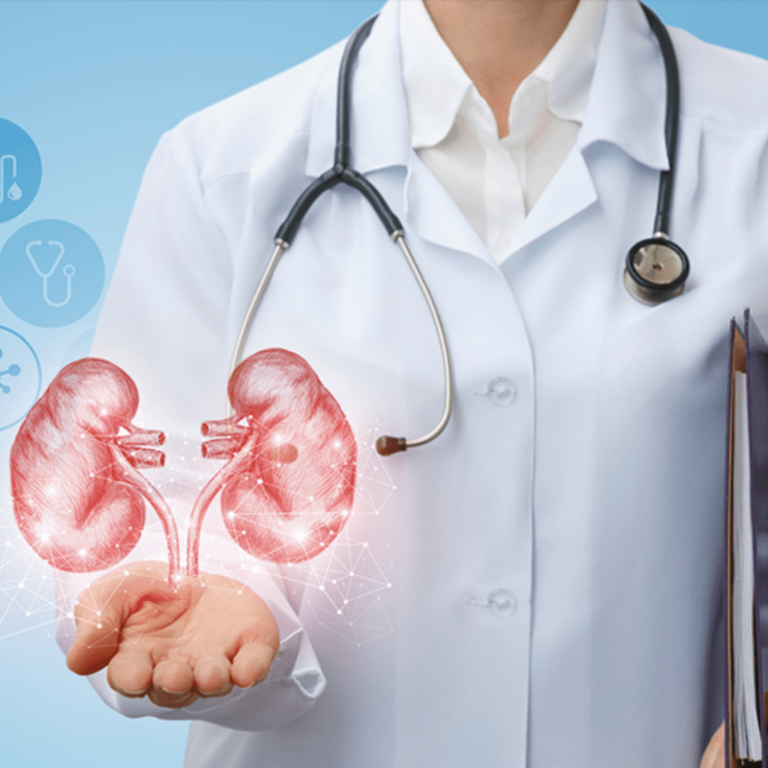Best Urology Hospital in Jaipur
Priyanka’s Urology Department includes basic and various specialized urological investigations and treatments for people of all ages with various medical requirements, and with the help of our expert staff, we have become one of the Best urology hospital in Jaipur. Priyanka Hospital is at the cutting edge of urological therapy in India because of the fact that it has an international panel of urologists on board.
Our urologists and nephrologists at Priyanka Hospital employ advanced diagnostic techniques, including minimally invasive procedures such as endoscopy, ultrasound, and urodynamic testing, ensuring accurate diagnoses and personalized treatment plans tailored to each patient’s medical requirements.
Being the premier urology hospital in Jaipur, it offers neuro-urological treatments, reconstructive urology surgeries like laparoscopic pyeloplasty, kidney transplantation and prostate diseases. These include kidney cancer, prostate cancer, testis cancer and penile cancer which are all treated at the various health facilities in order to provide complete and efficient care to the patients.

Why Choose Priyanka Hospital For Urology in Jaipur
As the best urology hospital in Jaipur, Priyanka Hospital offers a comprehensive range of services to address all aspects of urological health. From diagnostic testing and medical management to minimally invasive surgeries and advanced robotic procedures, we provide holistic care to improve patients’ urological function and quality of life. For patients in Jaipur that are in need of urology services, Priyanka Hospital is the top choice for professional diagnosis, optimal treatment, and receptive care. Our skilled urologists, a wide range of offered services, and the usage of the latest technologies are the reasons why our healthcare facility is the best urology hospital in the city.
What is a Urinary Infection?
A urinary infection commonly referred to as a urinary tract infection (UTI), is an infection that affects any structure that makes up the urinary system which includes the kidneys, the ureters, the bladder and the urethra. Bacterial infections are the most frequent cause of UTIs, although the infections can be caused by fungi or viruses as well.
One of the most familiar types of UTI is cystitis which involves the invasion of bacteria into the bladder and subsequent development of inflammation and irritation of the bladder wall. Another category of UTI is a kidney infection also known as pyelonephritis which is caused by the bacterial penetration up the ureters and the renal parenchyma. As compared to the lower urinary tract infections, the upper urinary tract infections, specifically the kidney infections are comparatively more serious and can become schematics if not treated at the earliest.
Urinary infections can occur in people of all ages, but they are more common in women than in men due to differences in anatomy. Risk factors for UTIs include:
- Female anatomy: Women have a shorter urethra than men, which makes it easier for bacteria to reach the bladder and cause infection.
- Sexual activity: Sexual intercourse can introduce bacteria into the urinary tract, increasing the risk of UTIs.
- Certain types of birth control: Diaphragms and spermicide-treated condoms can increase the risk of UTIs in some women.
- Urinary tract abnormalities: Structural abnormalities in the urinary tract, such as kidney stones or urinary retention, can predispose to UTIs.
- Weakened immune system: Conditions that weaken the immune system, such as diabetes, HIV/AIDS, or chemotherapy, can increase the risk of UTIs.
- Catheter use: Having a urinary catheter inserted can increase the risk of bacterial colonization and UTIs.
The symptoms of a urinary infection may vary depending on the location and severity of the infection, but common symptoms include:
- Frequent urge to urinate
- Pain or burning sensation during urination
- Cloudy or foul-smelling urine
- Blood in the urine (hematuria)
- Lower abdominal or pelvic pain
- Fever and chills (in cases of kidney infection)
Treatment for UTIs typically involves antibiotics to kill the bacteria causing the infection. Drinking plenty of water and urinating frequently can help flush out bacteria from the urinary tract. In cases of recurrent UTIs or complicated infections, further evaluation and management by a healthcare provider may be necessary.
- Diagnostic procedures such as ultrasounds, laparoscopies, and hysteroscopies.
- Surgical interventions like caesarean sections, hysterectomies, and surgeries for prolapse or heavy bleeding.
- Management of high-risk pregnancies.
- Treatment of disorders of the female reproductive system such as endometriosis or fibroids.
- Screening for cancer, including cervical screening (Pap smear).
- Providing family planning and contraception advice, including fitting intrauterine devices (IUDs).
- Insertion and removal of intrauterine contraceptive devices (IUCDs).
- Diagnosis and treatment of infertility issues.
- Treatment of menopausal symptoms.
Procedures to be taken for Urosurgery
Urological surgery or urologic surgery or urology is a branch of surgery that deals with the surgical treatment of conditions affecting the urinary system and the male reproductive system. Some common procedures performed in urological surgery include:Some common procedures performed in urological surgery include:
1. Transurethral resection of the prostate (TURP): A minimal invasive procedure where the surgeon removes a part of the prostate gland that is causing obstruction to the urinary passage of the urine through the urethra.
2. Radical prostatectomy: Complete prostatectomy is the removal of whole of the prostate gland which is done in cases of prostate cancer that has not spread beyond the gland.
3. Nephrectomy: Nephrectomy is the operation by which all or part of the kidney is removed, for conditions such as kidney cancer, severe renal injury, renal infection or anuria.
4. Partial nephrectomy: Partial nephrectomy which entails the removal of part of a kidney while leaving the rest of the healthy tissues intact. This procedure is used to remove kidney tumours while at the same time preserving the kidney’s functionality.
5. Cystectomy: A surgery through which the bladder is excised; usually carried out for cancer of the bladder. Sometimes, another surgery known as the urinary diversion is also done to establish a new path through which the urine will pass out of the body.
6. Transurethral resection of bladder tumor (TURBT): Surgery to cut out bladder tumors or any unhealthy tissue via a cystoscope that is inserted to the bladder via the urethra.
7. Ureteroscopy: A non-surgical technique in the diagnosis and management of diseases of the ureters or kidneys including stones and strictures. A flexible or rigid ureteroscope is placed in the urethra and passed up the urinary tract for the diagnosis and treatment of the issue.
8. Percutaneous nephrolithotomy (PCNL): A non-invasive surgery to extract big kidney stone, or several stones at one time through a small incision in the back where a nephroscope is passed directly into the kidney.
9. Lithotripsy: An extracorporeal procedure of treating kidney stones by using shock waves not inside the body but outside the body so that the particles can be passed out in the urine.
10. Lithotripsy: A non-invasive procedure to break up kidney stones using shock waves generated outside the body, allowing the fragments to pass out of the body in the urine.
11. Vasectomy: Surgical sterilization procedure for men to prevent sperm from reaching the semen, typically performed by cutting and sealing the vas deferens tubes.
These are just a few examples of the procedures performed in urological surgery. The specific procedure recommended will depend on the patient’s condition, symptoms, and treatment goals, as determined by a urologist after a thorough evaluation and discussion with the patient.
Explore Our Main Service
FAQs on Urology
What is Urology, and what conditions does it involve?
Urology is a medical specialty focused on the diagnosis, treatment, and management of conditions affecting the male and female urinary tract and the male reproductive system. Urologists are medical doctors who specialize in treating conditions such as urinary tract infections (UTIs), kidney stones, bladder problems, urinary incontinence, prostate disorders, erectile dysfunction, infertility, and urological cancers (such as prostate, bladder, kidney, and testicular cancer).
What are the common symptoms of urological conditions, and when should I see a urologist?
Common symptoms of urological conditions may include pain or burning during urination, frequent urination, urgency to urinate, blood in the urine, difficulty starting or maintaining urine flow, urinary leakage or incontinence, pelvic pain, testicular pain or swelling, erectile dysfunction, and changes in urinary habits or sexual function. It’s important to see a urologist if you experience persistent or bothersome symptoms or if you have risk factors for urological conditions such as age, family history, or previous medical conditions.
What diagnostic tests and procedures are used in urology?
Urologists use various tests and procedures to diagnose and evaluate urological conditions. These may include urine tests to detect infection or blood in the urine, imaging studies such as ultrasound, CT scans, or MRI to visualize the urinary tract and reproductive organs, cystoscopy to examine the inside of the bladder and urethra using a thin, flexible scope, urodynamic testing to assess bladder function, and biopsy to obtain tissue samples for analysis in cases of suspected cancer or other abnormalities.
What are the treatment options for urological conditions?
Treatment for urological conditions depends on the specific condition, its severity, and individual patient factors. Options may include medications (such as antibiotics for UTIs, alpha-blockers for enlarged prostate, or erectile dysfunction medications), lifestyle modifications (such as dietary changes and pelvic floor exercises for urinary incontinence), minimally invasive procedures (such as shock wave lithotripsy for kidney stones or laser surgery for enlarged prostate), surgical interventions (such as prostatectomy for prostate cancer or nephrectomy for kidney cancer), and other interventions tailored to each patient’s needs and preferences.
How can I maintain urological health and prevent urological conditions?
Maintaining urological health involves adopting healthy lifestyle habits and taking preventive measures to reduce the risk of urological conditions. This includes staying hydrated by drinking plenty of water, maintaining a balanced diet rich in fruits, vegetables, and whole grains, limiting alcohol and caffeine intake, avoiding tobacco use, practicing good hygiene (such as wiping front to back after urination and bowel movements), practicing safe sex to reduce the risk of sexually transmitted infections, and scheduling regular check-ups with a urologist for preventive care and early detection of any urological issues.
Still Have a Question?
If you cannot find answers to your queries, please fill out the enquiry form or call the number below. We will contact you shortly
